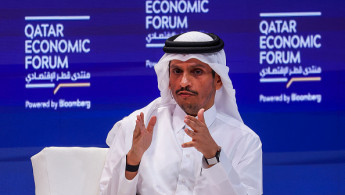GCC and 25 African states adopt 'Doha Declaration' to bolster labour rights and movement
Labour ministers from 33 states adopted the "Doha Declaration" on Wednesday, which aims to enhance regional and international cooperation around labour mobility between the Gulf Cooperation Council (GCC) states, Jordan, Lebanon, and 25 African countries.
The declaration was adopted following the 'Doha Dialogue on Labour Mobility between the Gulf and African Countries', a two-day series of meetings attended by labour ministers from signatory countries, as well as representatives from the African Union (AU) and the Executive Office of the Ministers of Labour in the GCC countries.
The declaration aims at strengthening joint coordination in the field of migrant labour to address illegal practices, ensure appropriate work, and enhance the contributions of the African workforce to drive sustainable development in both the sending and receiving countries.
One pledge of the declaration was that the Doha Dialogue be held every two years, as a voluntary and non-binding consultative forum with a joint trusteeship based in Doha.
Angela Martins, the director for Social development, Culture, and Sport at the AU, pointed out that African labour constitutes 12 percent of the total migrant workforce in the GCC countries, and this number is expected to rise.
She also stated that labour migration from Africa to the Gulf countries is due to various factors, including the search for better economic opportunities and geographical proximity.
Work conditions and environment
Khalil Hazza, director of the Labour Affairs Department at the Executive Office of the GCC Ministers of Labour and Social Affairs, said the Executive Office was working with the GCC labour ministries to organise the work environment and conditions.
This is being done by formulating a Gulf-wide strategic programme focused on occupational health and safety, including addressing heat stress, absenteeism reports, wage protection, and strengthening social protection frameworks for both national and migrant workers.
The declaration noted that migrant labour from Africa in the GCC countries, Jordan and Lebanon plays a fundamental role in achieving widespread growth and brought benefits to both the sending and receiving countries, as well as the workforce.
The number of migrant workers in the six GCC countries is estimated to be over 25 million. Saudi Arabia has the largest share of migrant workers, with around 11 million, followed by the UAE with around 5 million. Qatar and Kuwait each have over 2 million migrant workers, Oman has around 1.9 million, and Bahrain has 600,000 migrant workers.
A separate Doha Declaration was released on 30 April, which stressed the necessity of strengthening economic cooperation prospects and potential between Arab states, Central Asian states, and Azerbaijan.
This article is based on an article which appeared in our Arabic edition by Osama Saad El-Din on 23 May 2024. To read the original article click here.





 Follow the Middle East's top stories in English at The New Arab on Google News
Follow the Middle East's top stories in English at The New Arab on Google News


